OTHER ARTICLES OF THE SAME PLAGIARISED GENRE
REVEALING THE TRUE HOLE OF PAKISTAN IN THEIR OWN WORDS
STATE OF PAKISTAN
PAKISTAN INTERNALISING
PAKISTANS SOCIETAL FRACTURE
PAKISTANI INSIGHTS
NAYA PAKISTAN NAYA ANARCHY
A DAY IN THE LIFE OF AN ORDINARY PAKISTANI
THE NEW FORMULA
DAWN IN THE DUSK OF PAKISTAN
LOOTERS OF THE FIFTH REICH
PAKISTAN AT THE DAWN OF 2021
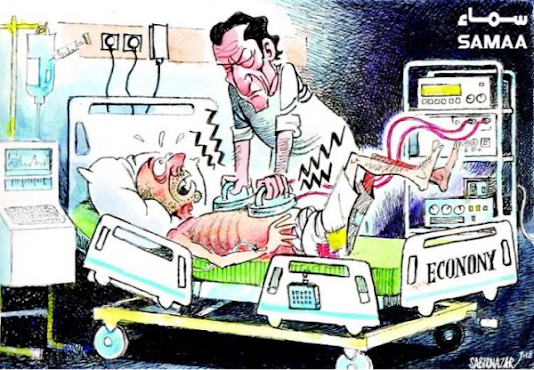
I have picked some opinion pieces from ‘Dawn’. As usual what is given here are excerpts only. Click on the links next to the headings for the full article. Whatever are my comments and opinion are in blue colour.
What is happening in Pakistan? Nothing special. That’s important since if something is happening, then it will be up to no good!
Having said that, for a long time now, India is not occupying the mind of Pakistani opinion makers. Of course , one does find the standard anti India article as daily rant which is mostly negative. That is staple diet for any Pakistani newspaper and is expected. However what is striking is that there is a sobering realisation within, which is telling them that as a country they are up against the wall. It is indeed a lot for someone within Pakistan to call it a ‘Sick Man of South Asia’. What is more important is that there seems to be no way out of this sickness! No one seems to have a solution. Everyone is on the take. The country is haemorrhaging without a full stop. These articles which I have put together actually reveal the real problems within Pakistan. The problem is not Terrorists, Taliban, Afghanistan, India, USA or any one external to Pakistan. It is political, economic and military in nature.
A National Dialogue @ https://www.dawn.com/news/1601557/a-national-dialogue
This article brings out that the state of polarisation of Pakistani internal politics. It has made every opinion maker call for a national dialogue to resolve political differences. However the attempt at establishing accountability through the NAB is now a cupboard full of skeletons of all actors. These skeletons are tumbling out. These skeletons are contributing to further polarisation. The Sick Man of South Asia will remain polarised and not recover in a hurry.
OVER the last few weeks, calls from influential members of civil society have been growing for a ‘grand national dialogue’. This appears to be a result of the growing political polarisation in the country, and a shrillness in the public discourse introduced by the PTI government since it came to power. However, this also coincides with much of the mainstream political opposition’s leadership facing an accountability process for some fairly visible amassment of largely unexplained wealth that has happened during their respective tenures in public office…
….The recent revelations by Kaveh Moussavi, the Iranian-born British lawyer who headed the international asset-recovery firm Broadsheet, which had an agreement with NAB from 2000 to 2003, is a damning indictment of the true objectives of the accountability process under Gen Musharraf and the way NAB has conducted itself since…
…In fact, ‘accountability’ has been used as a Trojan horse…These shenanigans have fatally undermined the credibility of the process in Pakistan and caused long-term damage via an array of mostly unintended consequences…
…It would appear that one area of concern where there is common ground across the national spectrum is the economy, and issues around the social contract. There is finally — though too belatedly — a realisation that Pakistan is the ‘sick man of South Asia’ in terms of its economy, due to the short-sighted economic management of successive governments over the past three decades.
Broadsheet’s Revelations @ https://www.dawn.com/news/1601361/broadsheets-revelations?preview
The Sick Man of South Asia has a major sickness. Every political party is into high order corruption and money laundering including PTI. The broadsheet revelations are revealing skeletons which everyone knew were well stacked and hidden in Pakistan’s cupboard. They were conveniently ignored by everyone. However these things have a life of their own and are tumbling out. The four macro issues which have bedevilled Pakistan – Corrupt Politicians, Ambitious Military, Radical Clerics and State Sponsored Jihadis are the major contributors to the skeletons of corruption and bankruptcy of the country.
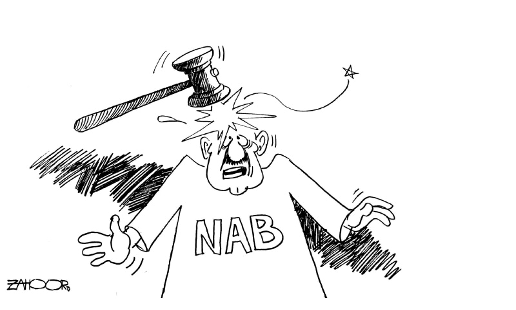
… the revelations by the UK-based firm, Broadsheet LLC, expose the “massive scale of our ruling elite’s corruption and money laundering”. The interview given by the company’s owner, Kaveh Moussavi, to a YouTube news channel also reveals the sham that has been the exercise of accountability in Pakistan.
… it was back in 2000 that Broadsheet was hired by Gen Musharraf’s government to work with the newly set up NAB to track down Pakistanis’ ill-gotten wealth stashed overseas; the contract was terminated in 2003.
… It is this country’s misfortune that, under NAB, accountability has become a handmaiden to political expediency and short-term gains. Among Mr Moussavi’s claims, the least startling are the ones about how NAB dropped investigations into high-profile corruption suspects after deals were struck with them, or took them off its list of ‘targets’ if those individuals came back into political favour. For, despite all the clamour in the lead-up to the 2018 election about bringing the corrupt to book, accountability under the PTI appears a lot like it did before — a political witch-hunt. Some credible exposés have oddly enough not even merited an inquiry by NAB.
Is The Economy Recovering @ https://www.dawn.com/news/1601364/is-the-economy-recovering
This is an interesting article which gets to the guts of how Pakistanis ply their trade – eternally in denial. There is a lot of talk that exports are up and Pakistan’s economy has started on a V shaped recovery. This article belies all such talk. It actually brings out that the GDP is not going anywhere. It also brings about that the exports surge is more about money laundering and getting black money back into Pakistan. The Economy will remain sick while all the money launderers get rich.
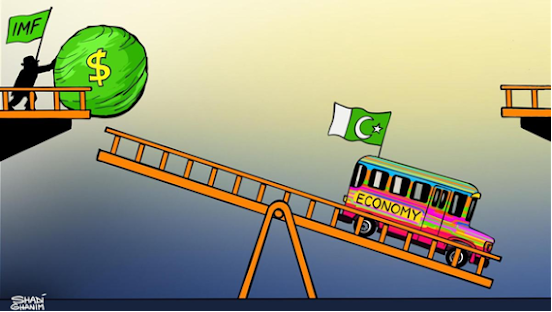
GOING by what we are hearing these days, it seems the country’s economy is in the middle of a rebound…. Planning Minister Asad Umar has been talking about a ‘V-shaped recovery’ since at least August… Prime Minister Imran Khan has been talking about a ‘recovery’ in the economy since at least November….
So is it true that the economy is indeed recovering? ….all projections for where the economy will stand by the end of this fiscal year range between 0.5 per cent GDP growth and 2.5pc….
You can spin these numbers if you like…
What you cannot do, however, is refer to 2pc GDP growth as some sort of ‘recovery’…keep in mind that the trade deficit has grown even faster than exports… whenever we have rising periods of growth we also see a rising trade deficit which eventually swamps growth because the foreign exchange reserves deplete…
….So what’s going on? …there is rampant under-invoicing of exports going … These guys are basically taking the prime minister for a ride…many are then routing some of this money accumulated abroad via over-invoicing back into the country in the form of remittances, which might help explain why the latter remain elevated above the $2bn level for many months now
…Why would they do this? Because there are enormous benefits for them to bring that money back and pour it into real estate investments instead, since that sector is on the cusp of a boom…
So no, the economy is not turning around or recovering. It is in the early stages of what might become a growth spasm driven by massive state inducements of the sort we have seen before and which inevitably lead to a crash…Let’s see what happens to this gravy train once the IMF programme resumes.
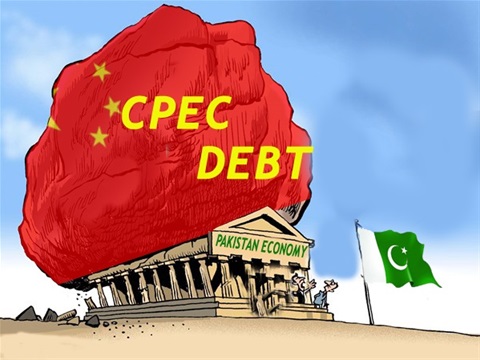
Extending CPEC @ https://www.dawn.com/news/1599988
This article points at a new angle of the economic unviability of CPEC. Pakistan has taken usurious loans from China to build infrastructure. It is understandable provided that at some point, the infrastructure starts paying off. That is not going to happen. Till now we knew that all the power plants which were being built as part of the CPEC were unviable since the power purchase agreements were lopsided to benefit China and no one in Pakistan pays for power. This article reveals as to why all the shiny roads being built as part of CPEC are economically unviable. They will only add to the debt burden of Pakistan without having any economic benefit. CPEC can be described as a permanent debt burden of unwanted roads and power projects.
NEVER in Pakistan’s history has a project been peddled to the people as a game changer the way that the China-Pakistan Economic Corridor has been. The government is enthusiastic about the $60 billion worth of concrete carpeted highways, energy projects and special economic zones. Early harvest projects worth $19bn have been completed, and CPEC is now in its second phase, in which most of the projects will be based on a public-private partnership model…
For now, the projects in its first phase have failed to usher in the level of prosperity that was promised to the people….
Pakistan and China have already invested huge capital on building the road infrastructure for CPEC. According to estimates, $11bn will be spent on the construction of roads and highways. However, Pakistan will not be able to accrue maximum economic benefits and ensure the financial sustainability of the infrastructure….
Moreover, Pakistan already had a road network – which may not have been as shiny as CPEC, but certainly helped to connect different parts of the country. A parallel road infrastructure might look good to the eyes, but it will not gain traction with the heavy transport sector since it also means more fuel and toll costs…
The M2 motorway between Lahore and Islamabad is a good data point to understand how un-optimised highways can be detrimental to the economy. The motorway took more than seven years to build, with a total cost of approximately $1.2bn. Despite this, to date, the preferred route for trade transport is the GT Road, which saves fuel and toll costs for heavy transport. Even after more than 20 years of its construction, the motorway has not seen a massive increase in freight traffic; rather, it has only added to Pakistan’s foreign debt service obligations….
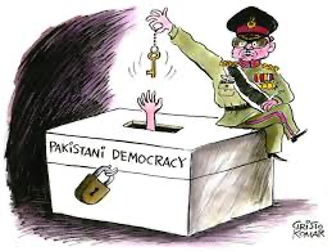
Military’s Role @ https://www.dawn.com/news/1601200/militarys-role
This article reaffirms what we know about Pakistan. The state institutions are slowly being militarised as the Military gets more into daily governance. There are going to be second order effects. These will be in different hues. Some good and some bad for India. India needs to keep track of this trend since Pakistani behaviour will be dictated by this deepening involvement of the military in daily governance.
….. the Constitution clearly defines the functions of the army, namely to “defend Pakistan against external aggression or threat of war, and, subject to law, act in aid of civil power when called upon to do so”…….
….ISPR SPOKESMAN Maj Gen Babar Iftikhar asserted “The army does not need to enter the political fray, nor should it be dragged into it”….
…Even a cursory acquaintance with Pakistan’s history is enough to convey the extent of the military’s role in running the country, sometimes directly through coups that swept aside elected governments. At other times, it was enough to call the shots from behind weak civilian dispensations — the ‘civ-mil imbalance’ is a truism, not a figment of the imagination…
…The chorus alleging military meddling in politics, even daily governance, has risen to a crescendo since then. The fact that several major civilian institutions and bodies are headed by uniformed personnel has further sharpened the perception of a ‘hybrid government’….
Finally all I will say is that Pakistan is changing in some funny way with the military becoming all pervasive, the economy going down the chute and the politicians being permanently treated as military puppets. Pakistani new found interest is fawning on anything Chinese. They call Chinese economy a miracle @ https://www.dawn.com/news/1601556/the-chinese-economic-miracle. That is understandable. They will become a vassal state of China. That is predictable. The question is will they start leaning towards communism? Will to have watch the reconciliation between radical Islam and Communism presided over by a greedy military. Interesting times ahead.
Someone had rightly said – If you owe the bank $100 that’s your problem. If you owe the bank $100 million, that’s the bank’s problem.That’s exactly China’s dilemma.
Gunners Shot is now available on TELEGRAM and SIGNAL.
Those who are migrating out of WhatsApp can subscribe to the Gunners Shot Channel through this link on Telegram. https://t.me/joinchat/VAozVeSP81vJCwlg
The link for Signal is https://signal.group/#CjQKIJ1kIMh61IatbfRvhlLcOxgisy7kzCaLlI8nU4PWEYXeEhDkvIKGevk_evLFEexOd7Dr
In case the link does not work, please intimate me and I will add you manually.
Gunners Shot will continue to be available on Twitter, Facebook and WhatsApp also. You can also access all articles @www.gunnersshot.com
-The writer was India’s DG Artillery. He is highly decorated and qualified with vast operational experience. He contributed significantly to the modernisation and indigenisation of Artillery. He is now a Professor in the Aerospace Department of IIT Madras and is involved in applied research for defence technology. The views expressed are personal and do not necessarily reflect the views of Raksha Anirveda








